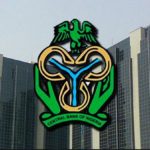The Central Bank of Nigeria (CBN) has announced its resolve to remove the chairmen and chief executives of any commercial bank whose accounts remain unpublished for 12 months after the end of the bank’s financial year.
This directive is contained in the CBN’s Monetary, Credit, Foreign Trade and Exchange Guidelines for Fiscal Years 2018/2019 released at the weekend, signed by CBN Governor Godwin Emefiele.
The policy aligns with the provisions of the Bank and Other Financial Institutions Act (BOFIA) 1991, which require banks to, subject to the written approval of the CBN, publish their audited financial statements- financial position and comprehensive income- in a national newspaper printed and circulated in Nigeria not later than four months after the end of each financial year.
Besides, to allow the implementation of consolidated supervision, the CBN directed all banks, discount houses and their subsidiaries to continue to adopt December 31 as their accounting year end.
the CBN, in the guidelines, said it would hold the board chairman and CEO of any defaulting bank directly responsible for any breach.
It added that appropriate sanctions would also be imposed on the defaulting banks which could include barring the chief executive or his/her nominee from participation at the Bankers’ Committee and disclosing the reason for such suspension; suspension of the foreign exchange dealership licence of the bank; and its name sent to the Nigerian Stock Exchange (in the case of a public quoted company).
”The CBN will continue to hold the Board Chairman and Managing Director of a defaulting bank directly responsible for any breach and impose appropriate sanctions, which may include barring the Managing Director or his/her nominee from participation in the Bankers’ Committee and disclosing the reason for such suspension.”
It will also include suspension of the foreign exchange dealership licence of the bank and its name sent to the Nigerian Stock Exchange (in the case of a public quoted company) and removal of the Chairman and Managing Director/CEO from office if the accounts remain unpublished for 12 months after the end of the bank’s financial year,” the report stated
The CBN pointed out that banks were expected to seek profitability by driving down costs and charging competitive rates instead of charging excessive rates of interest.
“Therefore, banks shall develop and implement a risk-based pricing model in line with the provisions of CBN circular referenced BSD/DIR/GEN/RPN/04/120 on ‘the need for banks to develop and implement a risk-based pricing model’, issued in October 2011.
“Furthermore, to ensure that the Monetary Policy Rate (MPR) is an effective tool for driving lending rates, banks shall disclose their prime and maximum lending rates as a fixed spread over the MPR.
“As part of its effort towards promoting greater financial inclusion in the country, the Bank shall continue to encourage banks to intensify deposit mobilisation during the 2018/2019 fiscal years.
“Accordingly, banks shall allow zero balances for opening new bank accounts and simplify their account opening processes, while adhering to Know-Your-Customer (KYC) requirements.
“Banks are also encouraged to develop new products that would provide greater access to credit,” the CBN added.
The guidelines further noted that ways and means advances would continue to be available to the federal government, to finance deficits in its budgetary operations to a maximum of five per cent of the previous year’s actual collected revenue.
Such advances, according to the CBN, shall be liquidated as soon as possible, and shall, in any event, be repayable at the end of the year in which it was granted.
“Consistent with the banking arrangement of Treasury Single Account (TSA), Ways and Means Advances would now be determined after recognising the sub-accounts of the various MDAs, which are now linked or connected to the Consolidated Revenue Fund (CRF) to arrive at the FGN consolidated cash position. This would continue in the 2018/2019 fiscal years,” it stated.
It reiterated that the aggregate foreign currency borrowing of a bank, excluding intergroup and interbank (Nigerian banks) borrowing shall not exceed 125 per cent of shareholders’ funds unimpaired by losses.
According to the guidelines, the outlook for the Nigerian economy remains optimistic, saying the momentum gained in the second quarter of 2017 was expected to persist into 2018/2019.
In addition, growth prospects were expected to follow global economic recovery, the CBN noted.
“Government efforts in the real sector are expected to spur growth and improve economic performance in the medium-term.
“Specifically, the implementation of the Economic Recovery and Growth Plan (ERGP), sustained CBN interventions and improved supply of foreign exchange are expected to stimulate growth in the non-oil sector, particularly in agriculture and manufacturing.
“The agricultural sector is expected to drive growth in 2018/2019 through increased production, which is a key objective of the ERGP,” it stated.
Source: News Agencies



